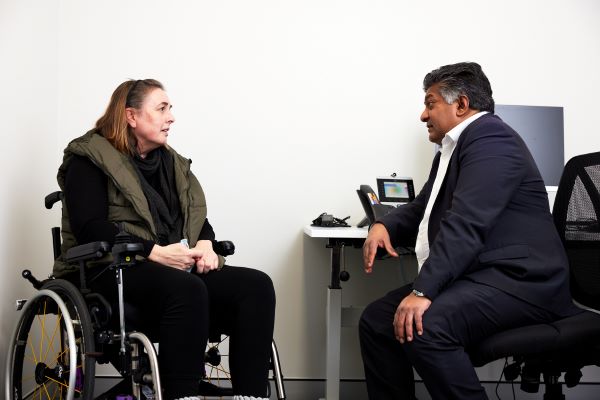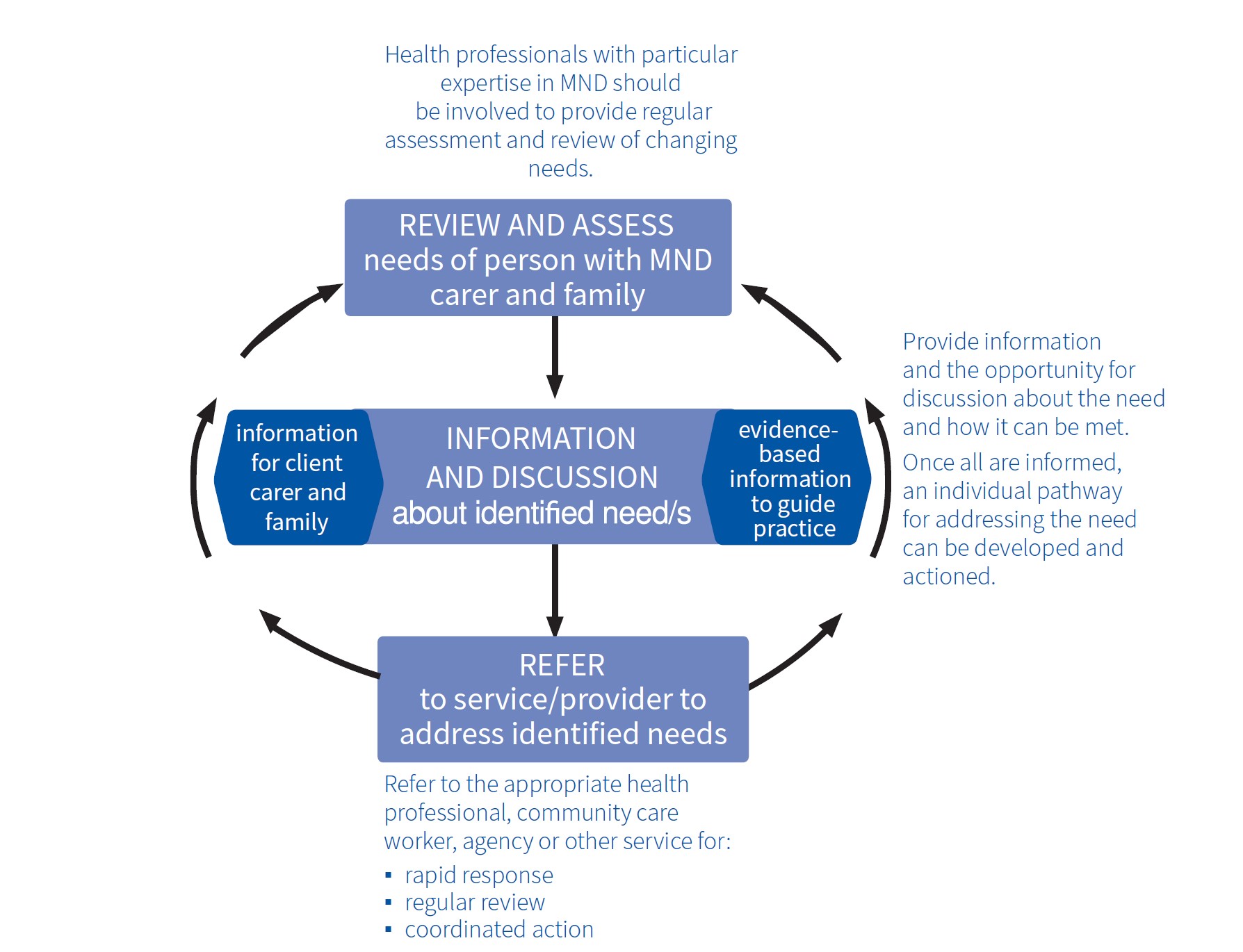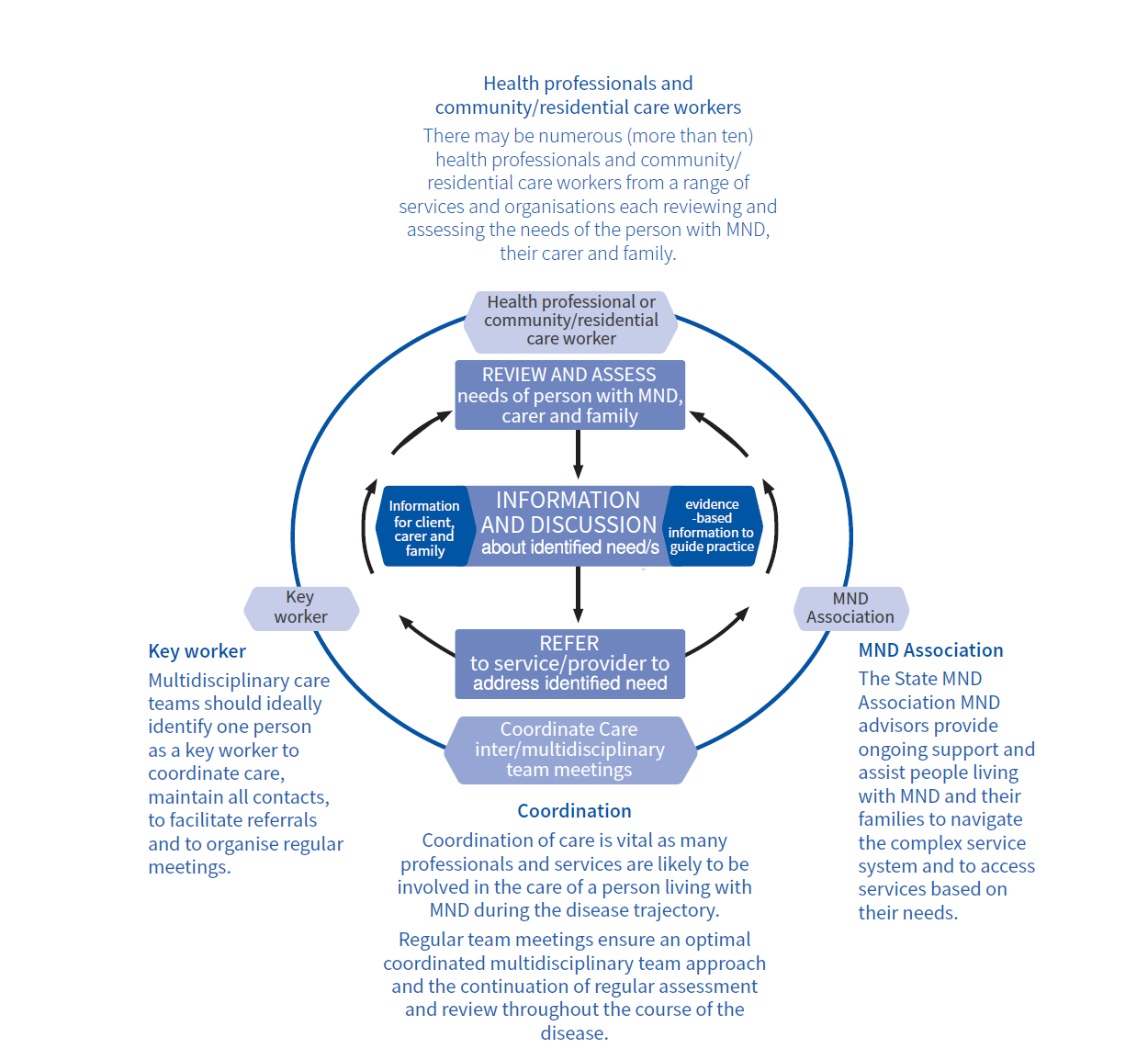

-
Information
InformationMND Connect provides resources, information and service linkage for people living with MND, their carers and family, as well as the health professionals and services providers who support them to live well.View all
- What is MND?
- Find services and support
- Living with MND
- Carers, family and friends
- Health professionals and service providers
- Resources
-
Research
ResearchMND Australia's research grants program supports high-quality MND research to discover the causes, improve care and find treatments and ultimately a cure for MND.View all
- Research we fund
- Take part in research & clinical trials
- For researchers
- Research news and updates
- Support MND research
- The MND Research Collective
-
Advocacy
AdvocacyOn behalf of people living with MND throughout Australia, and our state member Associations, MND Australia advocates to improve the lives of people impacted by MND.View all
- 2025 policy priorities
- Parliamentary Friends of MND
- Get involved in our 2025 federal election advocacy
- Government submissions, responses & hearings
-
Get Involved
Get involvedFind out how you can take part in advancing MND research and care in Australia. Through your support, we can work to improve the lives of those living with MND and drive forward research towards a cure.View all
- The National MND Lived Experience Network
- Ways to support MND Australia
- Get involved in our 2025 federal election advocacy
- News & Stories
-
Information
InformationMND Connect provides resources, information and service linkage for people living with MND, their carers and family, as well as the health professionals and services providers who support them to live well.View all
- What is MND?
- Find services and support
- Living with MND
- Carers, family and friends
- Health professionals and service providers
- Resources
-
Research
ResearchMND Australia's research grants program supports high-quality MND research to discover the causes, improve care and find treatments and ultimately a cure for MND.View all
- Research we fund
- Take part in research & clinical trials
- For researchers
- Research news and updates
- Support MND research
- The MND Research Collective
-
Advocacy
AdvocacyOn behalf of people living with MND throughout Australia, and our state member Associations, MND Australia advocates to improve the lives of people impacted by MND.View all
- 2025 policy priorities
- Parliamentary Friends of MND
- Get involved in our 2025 federal election advocacy
- Government submissions, responses & hearings
-
Get Involved
Get involvedFind out how you can take part in advancing MND research and care in Australia. Through your support, we can work to improve the lives of those living with MND and drive forward research towards a cure.View all
- The National MND Lived Experience Network
- Ways to support MND Australia
- Get involved in our 2025 federal election advocacy
- News & Stories

(MND services in the ACT are provided by MND NSW)
Building 4, Gladesville Hospital, Victoria Road, Gladesville NSW 2111
Post: Locked Bag 5005,Gladesville NSW 1675
T: 1800 777 175
Visit website Send a message66 Hughes Street, Mile End SA 5031
Post: PO Box 2087 Hilton Plaza SA 5033
T: 1800 777 175
Visit website Send a messageBuilding 4, Gladesville Hospital,Victoria Road, Gladesville NSW 2111
Post: Locked Bag 5005,Gladesville NSW 1675
T: 1800 777 175
Visit website Send a message(MND services in Tasmania are provided by MND Victoria)
265 Canterbury Rd, Canterbury Vic 3126
Post: PO Box 23, Canterbury 3126
T: 1800 777 175
Visit website Send a message(MND services in the NT are provided by MND NSW)
Building 4, Gladesville Hospital, Victoria Road, Gladesville NSW 2111
Post: Locked Bag 5005, Gladesville NSW 1675
T: 1800 777 175
Visit website Send a message265 Canterbury Rd, Canterbury Vic 3126
Post: PO Box 23, Canterbury 3126
T: 1800 777 175
Visit website Send a message1/89 Factory Road, Oxley QLD 4075
Post: PO Box 470, Inala QLD 4077
T: 1800 777 175
Visit website Send a messageUnit 1, 184 Raleigh Street, Carlisle WA 6101
Post: as above
T: 1800 777 175
Visit website Send a messageSearch




